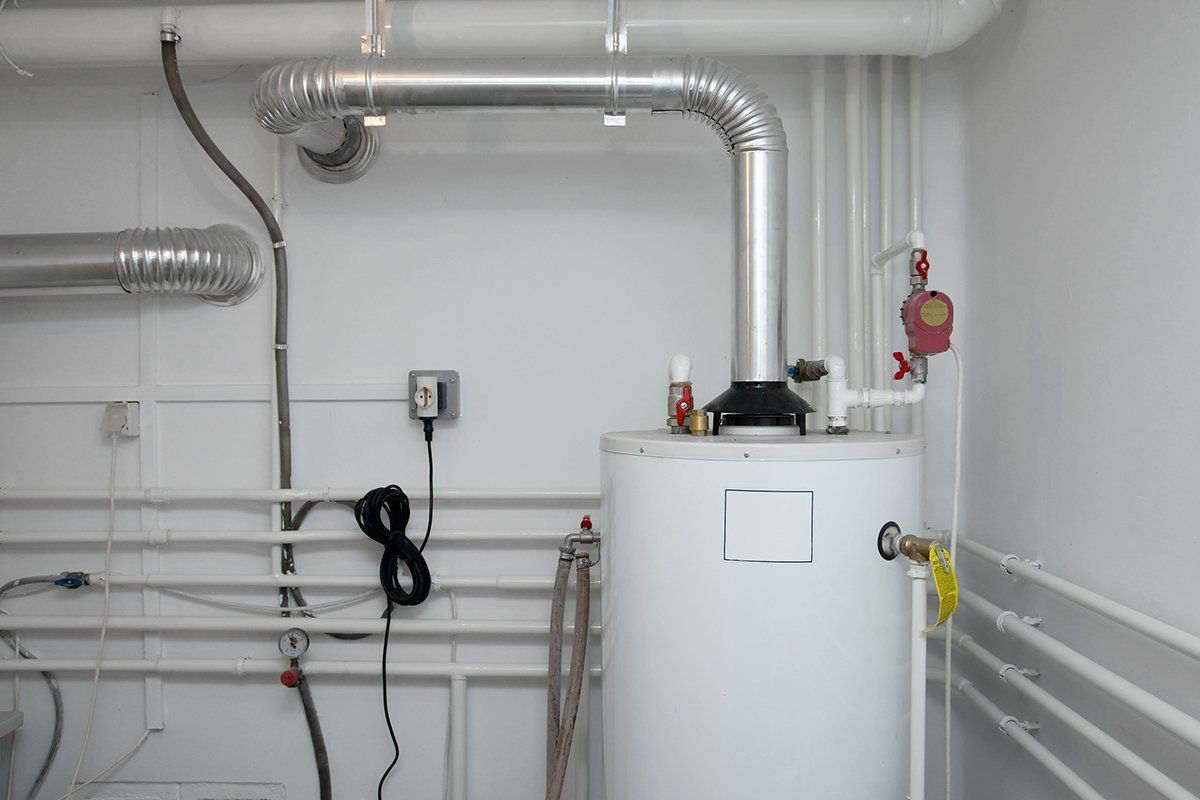Common Reasons for 2 Water Heater Symptoms

If you're having problems with your hot water heater, chances are the problem is one of two things: the heater sprang a leak, or it doesn't seem to be able to heat water like it used to. Here are some common reasons for each of these issues.
Leaking Water Heater
Your water heater could spring a leak for several different reasons, some of which are considered fatal for the tank while others are less serious or even normal. The key is to follow the leak to the source, since leaks in different spots indicate different problems.
1. Temperature Pressure Relief Valve
The temperature pressure relief valve is designed to leak. Its purpose is to sense when the water heater has too much pressure and to let a little of that pressure out. This can mean a little water comes out as well.
However, when the valve emits water, it may also be because the valve is faulty and needs to be replaced. Your plumber can do this quickly and easily.
2. Corroded Hot Water Tank
This is the deadliest to your water heater. If the tank is simply corroded so badly inside that it's rusted through, and it has started letting water escape, start shopping for a new heater. That's because, by this time, damage to the tank is extensive and trying to patch it up isn't worth the effort.
Your water heater has a small rod called a sacrificial anode that's designed to rust away over time, which prevents the water from corroding the inside of your tank as quickly as it otherwise would. If you don't replace the anode regularly, though, it gets completely used up and leaves the tank unprotected. This is one reason neglected tanks rust out so quickly.
3. Problem With the Connecting Pipes
Sometimes the cause of a leak will be simple: it's coming from the spot where a pipe connects to the water heater. This can occur after a new heater has been installed, and it may simply mean that the connection is loose and needs to be tightened down. Or the leak could mean a seal has gone bad and needs to be replaced.
Water Heating Failure
Cold or lukewarm water from your water heater may seem even more serious than a leak. After all, the heater can still deliver comfortably warm water even if it is getting a few drops on the basement floor. But in reality, a failure to heat the water at all can often be due to a simple burnout that a plumber can easily repair.
1. Burned-Out Burner
Typical water heaters have two burners in the tank. If one is burned out, you may discover that your water only gets heated up half as much as normal, leading to lukewarm water. Fortunately swapping out the burner is typically a quick fix once you've called the professional.
2. Circuit Breaker
If your circuit breaker has flipped, cutting off the power to your water heater, there could be a number of reasons. The heater could have faulty wiring, or one of the water heater's burners may have gone bad. Either way, this is an electrical problem, so don't delay; call for repairs immediately.
3. Sediment on the Bottom of Tank
In general, you should have your plumber flush the water heater out tank every year or so. That's because sediment builds up in the tank, and when too much sediment is present, it can cause big problems.
For one thing, the sediment can keep the burner on the bottom of the tank from working properly, which leads to a situation similar to the burned-out burner. But sediment can also cause bigger issues: for example, the layer can keep the bottom of the tank isolated from the sacrificial anode in the top of the tank, meaning the bottom of the tank may rust out quickly.
These are some of the common reasons why your water heater could be experiencing lowered effectiveness or a leak. If your water heater is acting up, get in touch with a plumbing contractor such as Express Plumbing & Drain Servicetoday.





